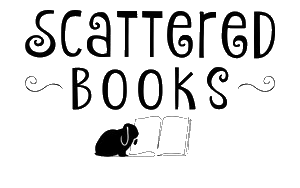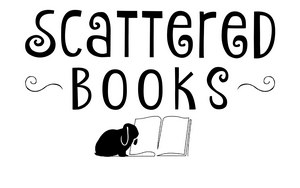 Book Summary: Fahrenheit 451 by Ray Bradbury
Book Summary: Fahrenheit 451 by Ray Bradbury
(High School Level)
Order on Bookshop.org and support local book stores
Audiobook version can be found on libro.fm
Book Summary:
“Fahrenheit 451” by Ray Bradbury is a classic dystopian novel set in a future society where books are banned and “firemen” burn any that are discovered. The story follows the protagonist, Guy Montag, a fireman who begins to question his duty to the state and ultimately has to choose between his personal beliefs and his loyalty to the government. Bradbury’s writing style is engaging and thought-provoking, drawing readers into a world where free thought is suppressed and conformity is valued over critical thinking and intellectualism. This classic novel is a must-read for anyone interested in science fiction, dystopian literature, or social commentary.
Plot:
- Set in a future society where books are banned and “firemen” burn any that are discovered.
- Follows the protagonist, Guy Montag, a fireman who begins to question his duty to the state and ultimately has to choose between his personal beliefs and his loyalty to the government.
Main Ideas:
- The importance of free thought and the dangers of censorship and conformity.
- The impact of a society that values entertainment over critical thinking.
- The power of language to shape our perceptions and beliefs.
Questions and Answers to consider while reading:
Q: What is the main conflict in “Fahrenheit 451”?
A: The main conflict in the story is between the government’s desire to suppress free thought and the protagonist’s desire to read and think for himself.
Q: What is the significance of the title “Fahrenheit 451”?
A: The title refers to the temperature at which paper burns, symbolizing the government’s desire to burn all books and suppress free thought.
What you’ll learn by reading this book:
“Fahrenheit 451” teaches us several important lessons about the dangers of censorship, the value of intellectual freedom, and the power of critical thinking. Here are some of the key takeaways from the novel:
- The dangers of censorship: The novel illustrates the ways in which censorship can limit free thought, stifle creativity, and ultimately lead to a society that is ignorant and controlled by the government. It also shows how censorship can be used as a tool to maintain power and control over the population.
- The importance of intellectual freedom: “Fahrenheit 451” emphasizes the importance of intellectual freedom and the pursuit of knowledge as a means of expanding one’s understanding of the world. It shows how reading and critical thinking can open up new perspectives and ideas, and how the suppression of these things can lead to a society that is stagnant and lacking in innovation.
- The power of individual thought and action: The novel highlights the importance of individual thought and action in the face of conformity and social pressure. It shows how one person can make a difference and inspire others to think for themselves and challenge the status quo.
- The role of language and communication: “Fahrenheit 451” underscores the importance of language and communication as a means of expressing ideas and connecting with others. It shows how language can be used to shape perceptions and beliefs, and how the suppression of language can limit our ability to communicate and connect with others.
When writing an essay on Fahrenheit 451 consider the following
An essay about “Fahrenheit 451” should include the following primary points:
- A summary of the plot: The essay should give a brief overview of the story and the main characters. It should include a discussion of the key themes and conflicts of the novel.
- Analysis of the characters: The essay should explore the motivations and actions of the main characters, particularly Guy Montag, Captain Beatty, and Clarisse. It should also consider the minor characters and their roles in the story.
- Examination of the themes: The essay should analyze the key themes of the novel, including censorship, conformity, intellectual freedom, and individuality. It should discuss how these themes are developed throughout the story and how they relate to contemporary society.
- Literary devices and style: The essay should explore the use of literary devices such as symbolism, metaphor, and imagery. It should also examine Bradbury’s writing style, including his use of language, tone, and pacing.
- Historical and cultural context: The essay should consider the historical and cultural context in which the novel was written, particularly the social and political climate of the 1950s.
- Personal reflection: The essay should include the student’s personal reflection on the novel, including their reaction to the story, the relevance of the themes to their own life, and any insights gained from reading the book.
Possible essay questions might include:
- What is the significance of the title “Fahrenheit 451” and how does it relate to the themes of the novel?
- How does Guy Montag’s character change throughout the novel, and what motivates these changes?
- Discuss the role of Clarisse in the story and the impact she has on Montag’s journey.
- Analyze the symbolism of fire in the novel and how it represents different ideas throughout the story.
- Discuss the role of technology in the novel and how it contributes to the dystopian society depicted in the story.
Sources that could be useful for an essay on “Fahrenheit 451” include:
- SparkNotes’ analysis of the novel: https://www.sparknotes.com/lit/451/
- The New York Times’ review of the novel from 1953: https://www.nytimes.com/1953/10/19/archives/a-fable-of-tomorrow-fahrenheit-451-by-ray-bradbury.html
- The Guardian’s article on the relevance of “Fahrenheit 451” today: https://www.theguardian.com/books/2018/may/08/ray-bradbury-fahrenheit-451-technology-social-media-future
Book Details:
- Published by Simon & Schuster
- Hardcover ISBN: 978-1451673319
- Number of Pages: 249 pages
- Number of Pressings: Numerous pressings and editions since the first publication
- Date of First Publication: 1953
Awards:
- National Book Award for Classics
- Prometheus Hall of Fame Award
- Grammy Award for Best Spoken Word Album
Overall, “Fahrenheit 451” is a thought-provoking and engaging book that is sure to leave a lasting impression on readers. With its powerful message and unforgettable characters, it is no wonder that it has won numerous awards and continues to be regarded as a classic of dystopian literature.
Ray Bradbury: Ray Bradbury (1920-2012) was an American author and screenwriter known for his science fiction and fantasy stories. He was a prolific writer who published over 500 works, including novels, short stories, and plays. Some of his other famous works include “The Martian Chronicles”, “Dandelion Wine”, and “Something Wicked This Way Comes”. Bradbury was known for his vivid imagination and his ability to create compelling worlds and characters that continue to captivate readers today.


 Book Summary: Fahrenheit 451 by Ray Bradbury
Book Summary: Fahrenheit 451 by Ray Bradbury